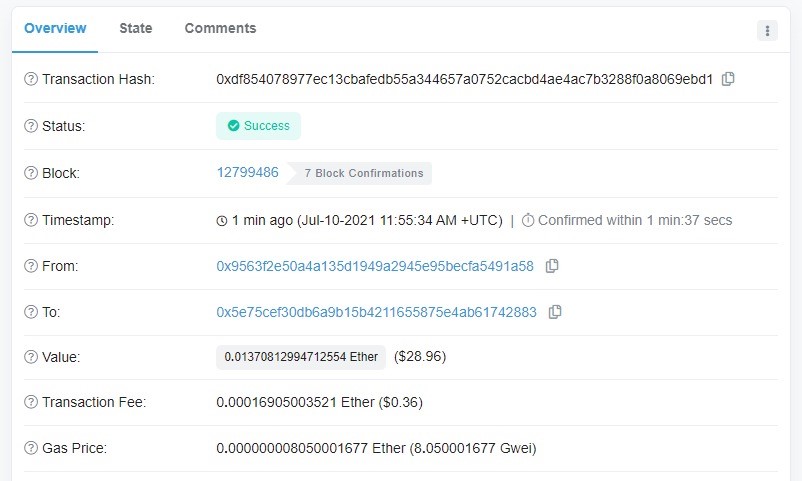
What are smart contracts?
A smart contract presents a computerized protocol or a code developed with the goal to execute the terms of some specific agreement. Running on such platforms as Ethereum, TRON, EOS or NEO, this is a kind of digital contract that helps to minimize the need for third parties thus reducing the associated expenditures. However, smart contracts can be used only in the conditions of well-developed IT infrastructure that is needed to make them function.
Smart contracts can be employed in various industries in different situations with ICO token sales, derivatives, and lending being the most obvious cases. They work brilliantly for cryptocurrency transactions, financial, legal, and insurance services, etc. They are an ideal solution for the management of the supply chain when each detail is automatically tracked for the efficiency of the process. International deals are also easily conducted and payment is received within minutes after work is completed as there are no geographic restrictions. Furthermore, when applied at the top level, smart contracts can be used for real estate registration, tracking pharmacy, and even help governments manage smart cities.
These examples showcase the advanced capabilities of companies in present conditions. The evolution of blockchain technology has the potential to tokenize many industries as the benefits that smart contracts provide are indisputable. P2P transfer of data and its storage on a distributed ledger has brought security and protection of information to another level. Though the details of each transaction are transparent and can be seen by the members of the network, the anonymity of the parties is preserved.
However, despite all the upsides of smart contracts, the technology still has some challenges to resolve with the correctness of the code being the most important. The code should be audited by experts to make sure that it works flawlessly.

The transparency and auditability are perhaps the best advantages that smart contracts provide as the details of every transaction are recorded on a public ledger (e.g. Etherscan in this particular case)
What are smart contract audits?
Though the development of smart contracts is rather expensive, blockchain platforms like Ethereum give affordable access to smart contracts functionality ‘out-of-the-box’. Developers can make use of some pre-defined industry standards such as ERC20 for Ethereum, SNIP-20 for Cosmos or BEP20 for Binance Smart Chain instead of creating the code from scratch.
However, as the underlying code is rather complicated, it’s important to remember about its integrity as even small errors may result in security issues. When smart contracts are deployed on the blockchain, there is no way to turn back and correct mistakes.
The vulnerabilities of smart contracts to hacking attacks can undermine even steady businesses. Professional smart contract audit services such as those provided by Blockhunters.io can reveal potential problems to eliminate any breach.
With smart contracts audit, the third-party specialists study the code with an unbiased approach in order to reveal all potential security breaches and thus save a lot of money for any company.
What projects need security audits and why?
Bugs in the smart contract’ code can result in irreversible losses or lock up big sums of money. Thus, an ill-famous DAO hack in 2016 enabled hackers to get away with almost $80 million in ethers. Some of the recent high-case studies include Yearn.FInance flash loan attack in 2021 with $2.7 million worth of losses and $53 million of EASI tokens stolen from the Polygon network.
To avoid such a situation and prevent hackers’ attacks, it is necessary to conduct security audits. Thorough scrutiny of the code can contribute to the security of any enterprise, especially if the company works in the financial sector.
It’s also worth adding that companies of medium size are more subjected to risk than large ones. Being aware of the fact that these enterprises economize on security audits, hackers look for flaws in the code to take advantage of your weakness.
How are smart contract audits done?
In the most basic approach, the process falls apart into the following stages:
- A company submits the code for review.
- Once the audit is complete, an interim report is released highlighting all the weak spots.
- Developers implement the fixes based on this report.
- One more final audit is done to ensure that no vulnerabilities are left.
The developers checking the smart contract scrutinize it to determine if there are any flaws in it. The problem can arise in case the code is written incorrectly. It’s essential to identify vulnerabilities of the code and bugs contained in it before the deployment of a smart contract to avoid financial losses.
Smart contract audit services help to prevent the problem. Taking into account that the complexity of the code differs in smart contracts considerably, the check can take a couple of days or more depending on the number of developers working over the audit. In some cases, a whole team may be hired for the task to complete the comprehensive check faster. The complex code can be audited for 15 days or even a whole month, but the result is worth it.
Types of smart contract audit services
With a manual code audit, experts conduct various inspections. They check if the code specifications are implemented correctly. And though a possibility of human error always exists when the code is checked manually, it is considered the best method of identifying coding problems. It is also possible to employ automated checks via different testing tools to determine mathematically if the specifications of the contract are implemented correctly.
Tokenguard platform has developed its own strategy and approach to automated checks, performing the job brilliantly. The service can help you conduct technical analysis and find out if the code is reliable.



